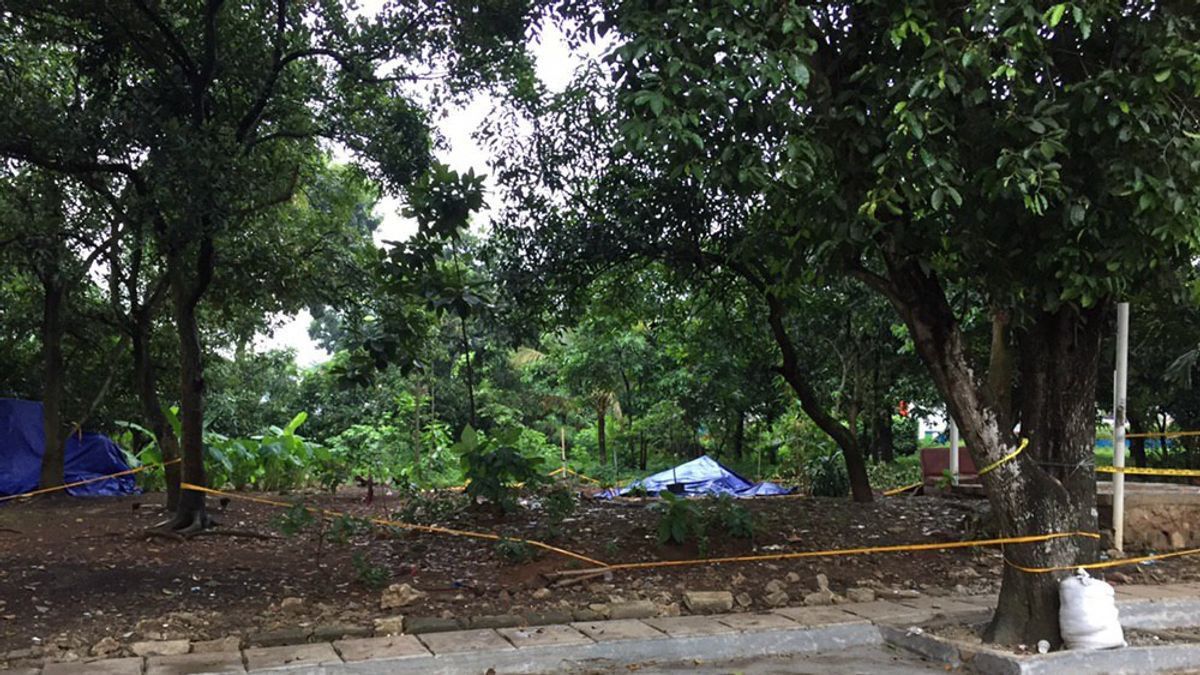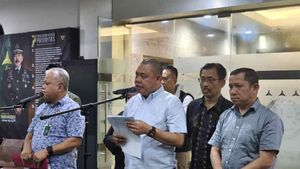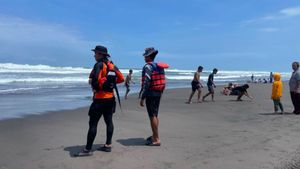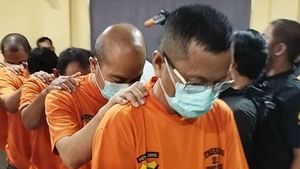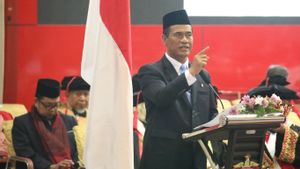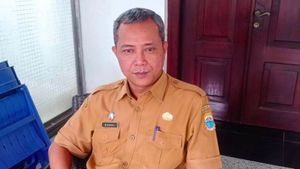JAKARTA - Investigations into the case of radioactive Cesium 137 findings are increasingly finding bright spots. The dangerous compound is known to belong to someone with the initials SM. However, based on the results of the examination, the possession of radioactive substances was due to offering SM also offering decontamination services illegally.
Decontamination is the activity of cleaning radioactive radiation exposure in an area. However, to do so must have a permit from the Nuclear Energy Regulatory Agency (Bapeten).
Head of Public Relations Division of the National Police, Kombes Adi Saputra, said that the cleaning activity of radioactive substances carried out by SM was thought to have been going on for quite a long time and involved several other people.
It is an indication that SM has been carrying out activities to clean up radioactive exposure for a long time, because the level of radiation from the compounds found in its house has decreased. This is because radioactive properties decay over time.
"The radioactive substance has started to decrease in radiation. The radioactive nature decays, meaning that the radiation decreases over time. This indicates that the item has been at home for a long time," said Asep, Sunday, March 1.
To prove it all, investigators dig information from BC. What is clear is that the action was alleged to have violated the rules, even though the legal status in the case was still a witness.
"We are still investigating this, whether it may be a business alone or maybe a collaboration," said Asep
When a criminal violation is found, the investigator will raise his legal status as a suspect and charge him with Articles 42 and 43 of Law Number 10 of 1997 concerning Nuclear Energy. The maximum penalty for the perpetrator is two years in prison and a fine of IDR 100 million.
Meanwhile, related to decontonation activities, Senior researcher at the National Nuclear Energy Agency, Professor. Dr. Djarot S. Wisnubroto has a different view. According to him, the activity of cleaning up radioactive exposure can be carried out by any organization. Provided, they have a business license and from Bapeten about competence.
"It should not be, which organizations are deemed competent to be allowed to do decontamination," said Djarot to VOI.
By not having a permit from Bapeten, SM's competence in cleaning up radiation exposure is questionable. Because, there are certain aspects that must be fulfilled when cleaning.
In terms of equipment, security, to human resources, it must meet the standards of Bapeten. So, not just anyone can do it.
"In general, sufficient resources, meaning that in terms of quantity and quality of human resources are adequate, have sufficient equipment," said Djarot.
Responding to these statements, Bapeten Public Relations Abdul Qohhar said that monitoring decontamination activities was not the responsibility of his party. Based on law number 10 of 1997 on nuclear power, all responsibilities are held by the license holder.
"Decontamination activities are the responsibility of the utilization permit holder, whenever contamination occurs during their activities. The waste generated from the decontamination process must be managed or sent to PTLR," said Qohhar.
The English, Chinese, Japanese, Arabic, and French versions are automatically generated by the AI. So there may still be inaccuracies in translating, please always see Indonesian as our main language. (system supported by DigitalSiber.id)
